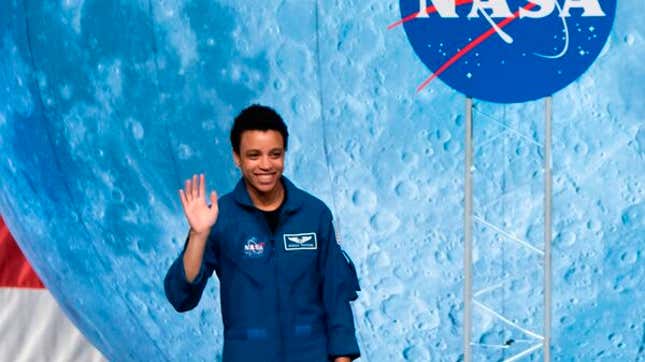
In an interview with NPR, Jessica Watkins shared she will be the first Black woman to spend an extended amount of time in space. The six-month mission will take off in April hosted by NASA and SpaceX sending a crew to the International Space Station.
Watkins told NPR she was inspired by Sally Ride, whom her elementary school was named after, to become an astronaut. Watkins said she’d been interested in geology and studying other planets but didn’t realize at first she could make it into a career. Watkins shared how it feels to make history.
From NPR:
Yeah, you know, I think it is - it’s important to recognize this as a milestone for our agency and for our country, as well, to know that we are building on the foundation that was laid by the Black woman astronauts who’ve come before me. I’m definitely honored to be a small part of that legacy but ultimately be an equal member of the crew.
NPR reported less than 10 out of the 250 people to board the ISS have been Black. Following Mae Jemison, the first Black woman to go to space, Stephanie Wilson and Joan Higginbotham were the only other Black women astronauts to fly to space.
Watkins said she prepared for the mission with training on the ISS and learning how to operate its systems to keep it running as well as protocols for if things stop working, per NPR. Watkins also mentioned she practiced spacewalk operations in a gigantic pool where there were mockups of the ISS underwater. Watkins said her objectives include geological studies of earth and space as well as biological studies around humans in space, using herself and her crew mates for reference.
From NPR:
One of the main jobs that we’ll do while we’re up there is science - earth and space science, which is near and dear to my heart as a geologist, biological science - so looking at cell and tissue growth and plant growth - and human research, as well. So we kind of become the lab rats ourselves and - to help us learn about the effects of long-duration spaceflight on humans, the physical effects, as well as the cognitive effects.
Watkins mission will be six months long featuring two orbits around the moon. She said this is an international collaboration being the ISS is also docked to Russia and has hope that political tensions will not interfere with the space mission. “And out of [the Cold War], we were able to create what we now have - the ISIS, you know, orbiting the Earth for over 20 years. And so that example gives me hope and encouragement that what we’re doing up there can span more than some of our, you know, kind of daily politics and provides some perspective in terms of how we can put all of our differences aside and really come together,” said Watkins via NPR.

